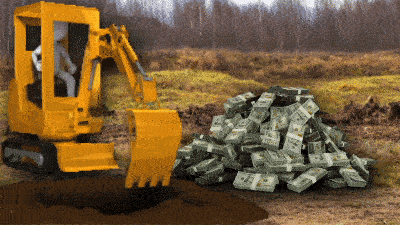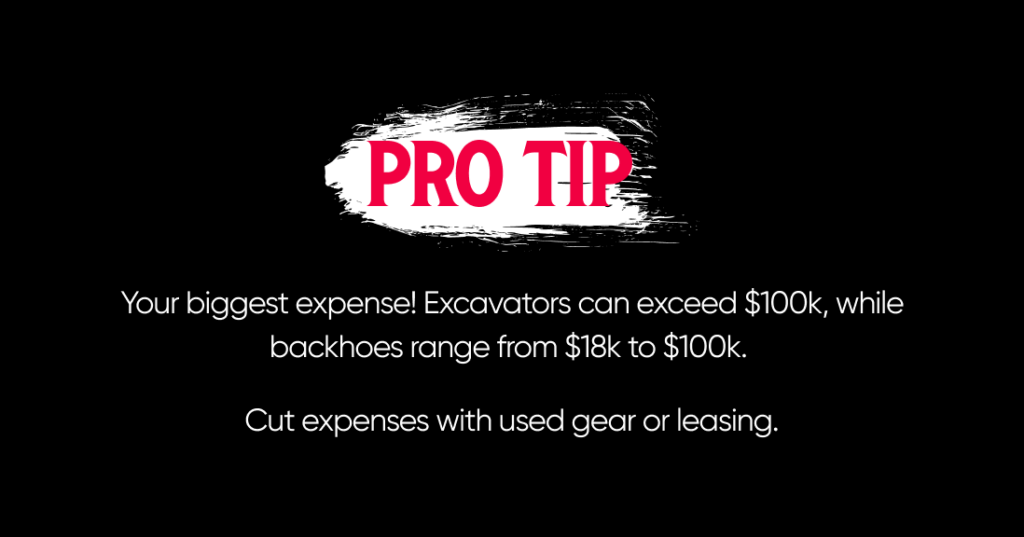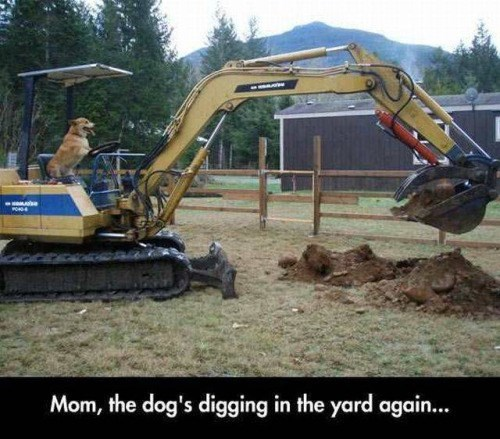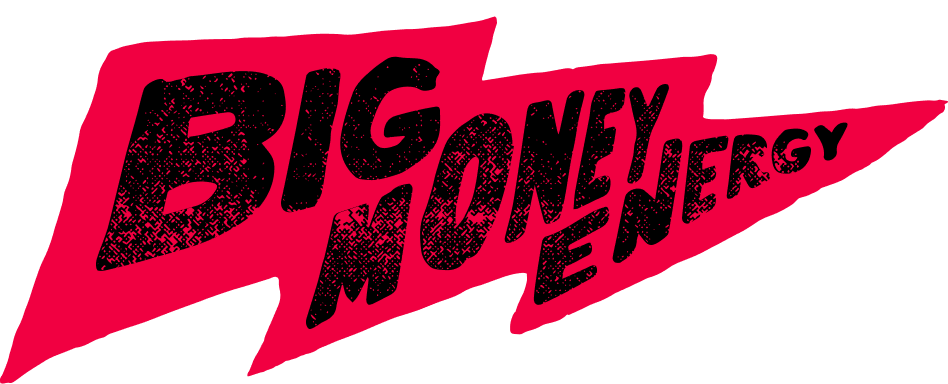
Digging up and moving dirt and other materials?
Sounds like a 5-year-old’s dream career, but running an excavation business is a viable business model.
The excavation industry relies on a solid housing and construction market. This $80 billion market held steady even through the pandemic. And it shows signs of continued profitability in the coming years.
You can start your own excavation business to grab a slice of that pie. But you’ll get faster results by buying someone else’s company instead.
The Advantages of Buying an Excavation Business
The long haul of running a service-based business like excavation doesn’t appeal to everyone.
People of all ages are always looking to exit or retire to hand off the business to someone new.
Combine that with the fact that the last baby boomers will hit full retirement age in 2031, and there’s a massive window of opportunity to buy successful excavation and other companies now.
When you buy instead of taking on the founding work yourself, you can take over a thriving business. You can take over from a business owner who already did the hard work of:
- Branding themselves
- Building relationships in the market
- Hiring and training a crew
- Buying the expensive equipment
You may make more money picking up the reins where they left off rather than trying to carve out your own space in the market as a brand-new provider.
And buying one of these businesses isn’t out of your reach.
Baby boomers are retiring, and many want to pass the torch by selling their businesses. You can find available excavation businesses on online marketplaces right now, like:
And you can find even more through old-fashioned networking or by using BizScout. Full disclosure: We own BizScout and created it as a way for entrepreneurs to find off-market business opportunities.
If you still believe starting from scratch is best for you, follow these steps to launch your own excavation company.
1. Start with Market Research and Build Your Business Plan

Does your existing skill set line up well with what it takes to achieve success in the excavation industry?
Here are three things you should be good at to decide if this business is the right fit for you:
- Comfort selling your skills and hustling to get new business.
- Networking skills to find and connect with partners.
- Behind-the-scenes operations skills like scheduling, accounting, and hiring.
It also helps to have a background in construction or related industries. People who start in the contracting world are more familiar with the equipment and project pricing.
To start a new excavation business, spend time doing research on potential customers and current competitors.
Speak with potential clients to understand their needs. Ideal contacts for you to make include:
- Local construction project managers
- Foremen
- General contractors
Ask them about the excavators they’ve worked with in the past. What worked well? What didn’t work so well?
2 simple questions to learn what you can do to serve your market better than competitors.
Take what you learn from this research phase and add it to your official business plan. Your business plan should include the following:
- Your financial plans and goals
- Startup costs and ongoing expenses
- Information about your team
- Your target market
- Your marketing strategy
If you buy someone’s excavation business rather than build your own, you can use their solid foundation to scale. Review the existing business plan and look for ways you can improve operations.
2. Get the Green Light with Permits and Rules
First, you’ll need to register your company with the secretary of state. During that process, you file a formal name and structure type with the government.
With no other people involved, you could operate as a sole proprietor.
But, most people benefit from filing as a limited liability company (LLC) or corporation instead. These business structures may come with more protection. A corporation may also offer tax benefits.
Second, get familiar with local and state laws that may apply to excavation operations.
Contact your area building contractor association to get more information about which permits and licenses apply to your new business.
Depending on the equipment you intend to use, you might need a CDL.
Third, begin researching insurance needs.
You should obtain general liability coverage no matter what, and you may also need workers’ comp insurance or surety services depending on your state and business type.
You’ll get all of the existing structures, licenses, and permits when you choose to buy someone else’s excavation company instead of starting your own. You’ll need to keep them up to date and keep getting new licenses for new employees, but you’ll be able to hit the ground running.
3. Finance Your Excavation Business

Excavation isn’t cheap. Lay out your intended startup costs to see if you need any loans or investments to start your business.
Startup expenses typically fall into these categories:
- Equipment: This represents the bulk of your costs. Excavators can cost over $100k, and backhoes can cost $18k-100k. You can keep costs down by buying used or leasing, but both options come with tradeoffs.
- Office/warehouse space: You’ll need somewhere to store your equipment. You can buy a location outright or lease one with monthly payments.
- Licenses and permits: Matching up with regulations may total a few hundred or even several thousand dollars, depending on your area.
- Insurance premiums: Getting equipment and employees covered may cost $3k-10k.
- Operation expenses: Plan for expenses like office supplies, marketing costs, fuel, salaries, and maintenance.
Bank loans and angel investors can provide a jumpstart fund to get things going quickly, but they come with drawbacks.
Bank and business loans are hard to get and often require long application processes. You’ll pay back the loans based on terms set by the lender. And you better start making money quick to pay down the loan before the interest creeps up.
Investors expect to earn their money back plus a slice of future profits. Paying any investors will eat into your business growth and earnings.
Financing is one area where buying someone else’s company has a clear advantage.
First of all, if you have to get a bank or business loan, you can show proof that the business is already making money.
Second, buying opens up a whole new realm of possibilities with seller financing. In these deals, you and the seller negotiate your own terms to finalize the sale.
You can customize your deal based on what you need more and where the seller will compromise. In most cases, you’ll get better terms than you could expect from a bank loan, and you won’t have permanent shareholders to pay back.
Beyond your startup cost analysis, set up a good accounting system from day one so you can project cash flow and account for every penny flowing in and out.
4. Gear Up with Equipment and Infrastructure

You can start small with your excavation business, but you’ll need some basic equipment to take on most jobs.
Here’s what you really need:
- Backhoe loader
- A pickup truck (at least 3-quarter ton size)
- A trailer for the backhoe
- Tamping and vibratory equipment
- Skid steer
- Chainsaw
- Erosion control supplies
- Shovels
- Rakes
- Gloves
That’s just the entry-level list. You will need a full-size excavator, a front-end loader, and more if you’re serious about this business.
Since machines cost the most in this mix, you might decide to lease/rent instead of buy. But there are tradeoffs you need to consider here.
If you own the machine, you can put it to work anytime.
If you rent, you need to plan ahead for when you’ll need it or stack jobs up closely enough to justify the rental fees.
Go with leasing if you don’t want to tie up working capital. Most leases offer fixed payments on a 12 to 36-month contract. You can also rotate your equipment in many lease contracts, reducing downtime and maintenance costs.
If you buy someone else’s excavation company, you’ll start with a full set of equipment. Just get a professional to check out the condition of any owned equipment first.
Stepping into the business with machines ready to roll can make a big difference when compared with laying out the funds for brand-new equipment.
5. Hire and Train Your Crew
This is a business where you will cap your profitability by trying to run it solo.
You can handle multiple jobs in various locations and get jobs done more quickly when you work with a team.
Look for experienced excavators and operators if you can find them. If you hire people without a background in this, budget in extra time for training.
These expensive machines may break down if someone doesn’t know what they’re doing. You can’t run that risk, so make sure everyone knows best practices.
Continue to invest in your operators by getting them the additional training or certifications they need.
If you buy a business, look at the current team and bring over anyone who knows the equipment and shows strong signs of reliability and professionalism.
6. Marketing Your Business to Potential Clients
With a new excavating business, you must make a name for yourself. Develop a brand identity with company colors, a color, and physical materials like business cards.
Excavating is a B2B business. That means you need to connect with other business owners who would hire you, such as construction project managers.
Find out where those business owners spend time. Make it easy for these partners to reach you.
Establish a solid website built with search engine optimization online. This will make it easy for potential customers to find you through Google. Make it easy to contact you by phone, chat, or email from the website.
Set up a Google Business profile. This will allow your past customers to leave reviews of your business. When potential customers see reviews from other people who are just like them, they’ll see that you can help them, too.
Set up profiles on social media. You might discover that a lot of contractors use LinkedIn, for example. Connect with them and take your networking online.
Advertise your business through:
- Social media ads
- Pay–per-click ads
- Printed ads in local publications (just be sure your customers actually read these)
As you earn business, get customer reviews from everyone you can. You can use these throughout your social media, website, and ads to highlight the real experience of past clients.
Marketing a B2B service is not always easy. It comes down to finding the right people and broadcasting your message to them.
That and a lot of networking.
Marketing is another step where buying a business holds the advantage.
The previous owner will have already established a strong reputation in the region. They’ll have established relationships and a customer base that you can tap into. You’ll be able to see what’s already working in marketing and make adjustments to improve the business’s efforts.
7. Run the Day-to-Day Operations
@allgroanup.1 ♬ original sound – Mary Roberts
It’s easy for new excavation business owners to overbook and struggle with operational systems. Hire an operator to manage things for you so you can focus on the big-picture strategy.
Empower your operator to develop or tweak processes. Overall, things should run smoothly with a focus on great customer service.
There are a few different software tools out there that help excavation businesses keep on track. Some examples include:
Tools like these can help you with:
- Estimation/quoting
- Scheduling
- Tracking equipment
- Organizing documents (like processes, SOPs, and safety docs)
Buying an established excavation company bypasses your ramp-up time to smooth operations. You’ll get all of their processes and tools for handling the business in the deal.
You’ll also start out with a staff that won’t need to train on how the business works.
You can also ask the previous owner to stay on for a period of time during or after the transition. You could promote a skilled employee to that role if the old owner wants a faster exit.
Handling Challenges and Setting Yourself Up For Growth

Like any business, an excavation company brings challenges. Here are some of the biggies:
- Equipment breakdowns can cause downtime, delayed projects, repair costs, and lost opportunities.
- With fewer projects in cold winters, you should account for busy and slow seasons appropriately.
- As the owner, you need to stay aware of changing regulations, standards, and trends in the industry.
If you keep an eye on these potential issues and plan for how you’ll deal with them, you can begin to grow the business.
You’ll also be able to set your sights on expansion opportunities when you have plans in place to make sure issues don’t crop up.
Expand into related services like dump truck services or even junk hauling. Or branch out into new regions to take on more work.
Digging Deep & Shoveling Success
An excavation business helps commercial customers get things done. Digging and hauling material may sound like pure fun, but it’s also hard work.
You need a team, equipment, and a solid business plan to find the kind of connections who will hire you on projects.
You can start your own company from the ground up, but it’s much easier to break into the excavation industry by buying someone else’s existing company instead.




